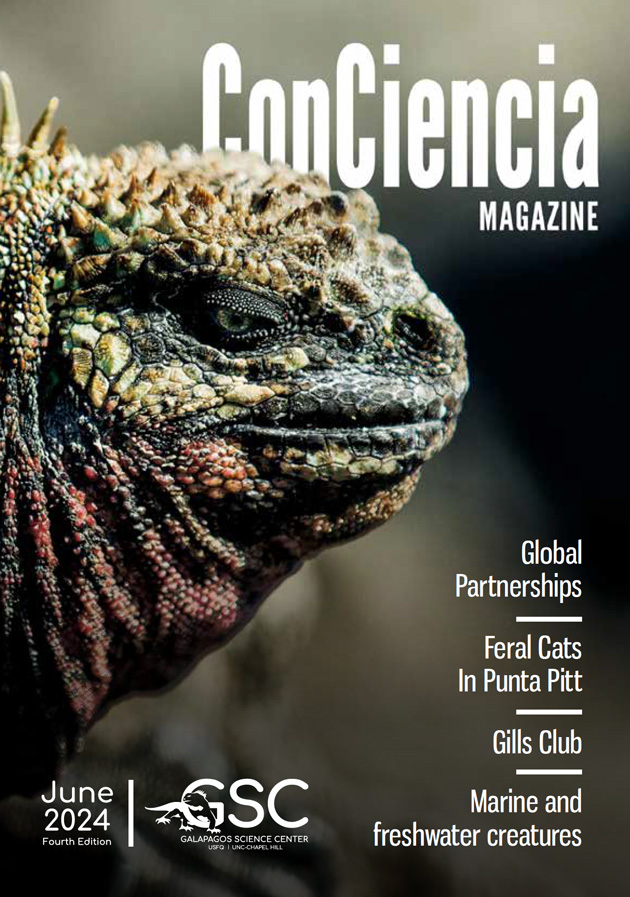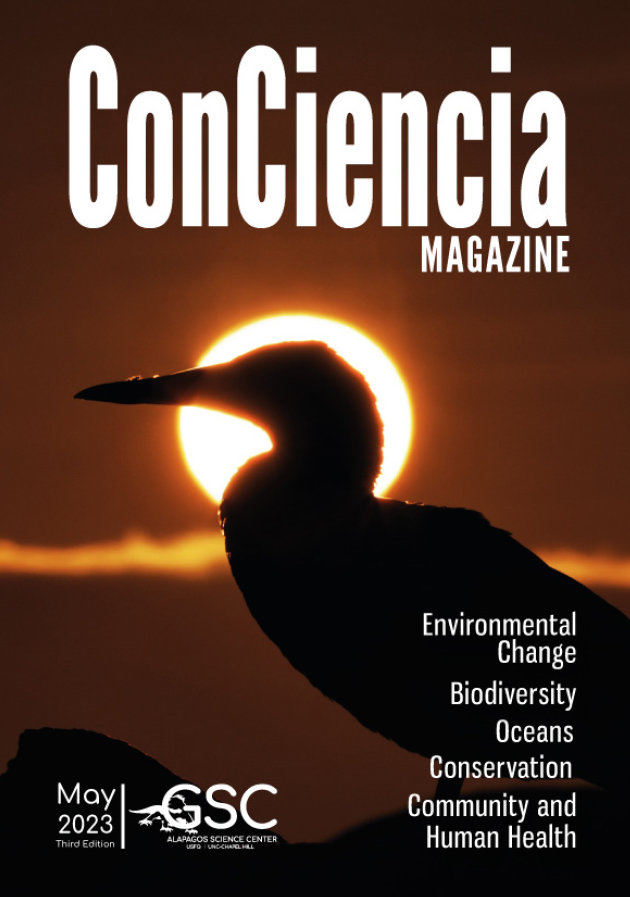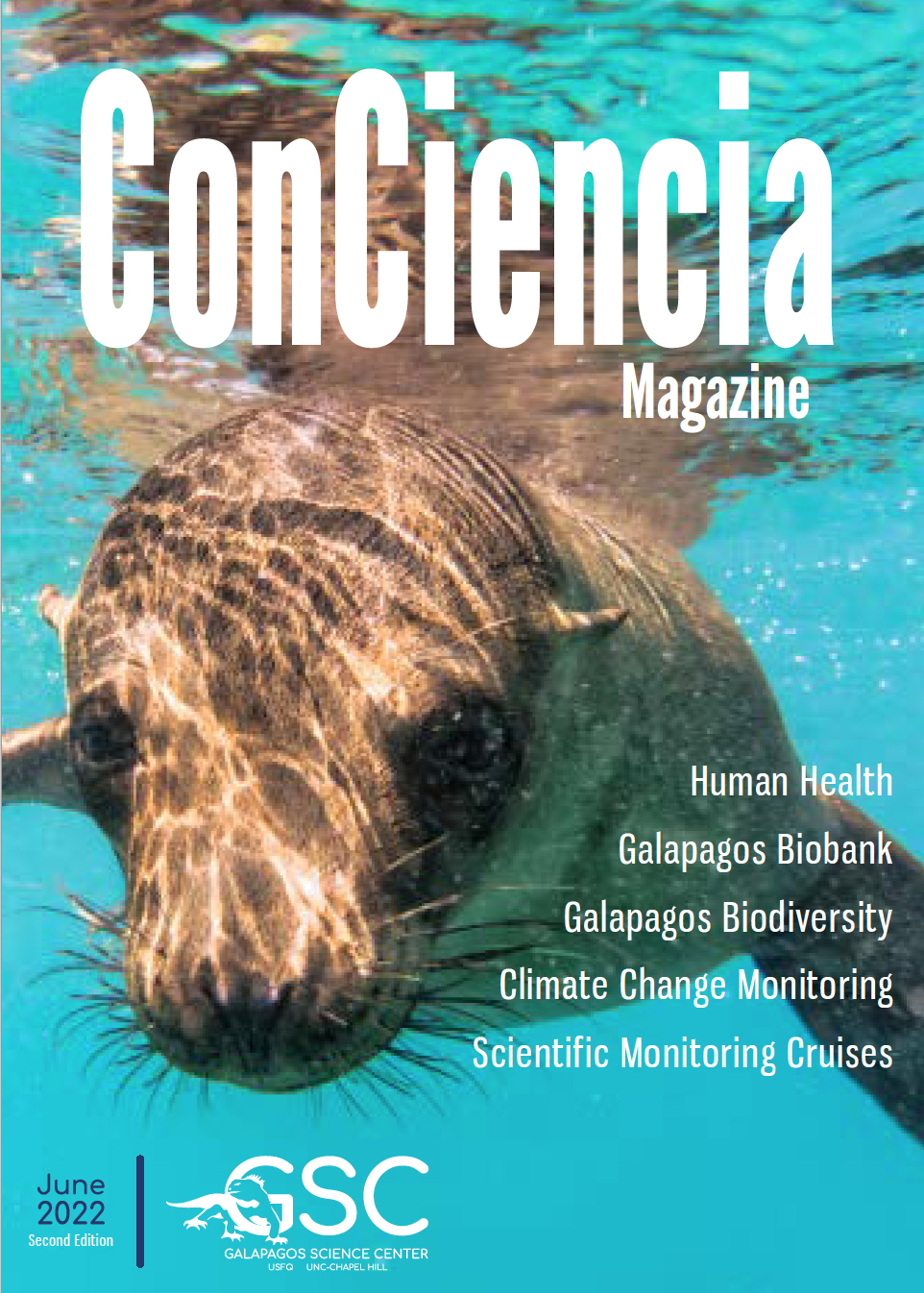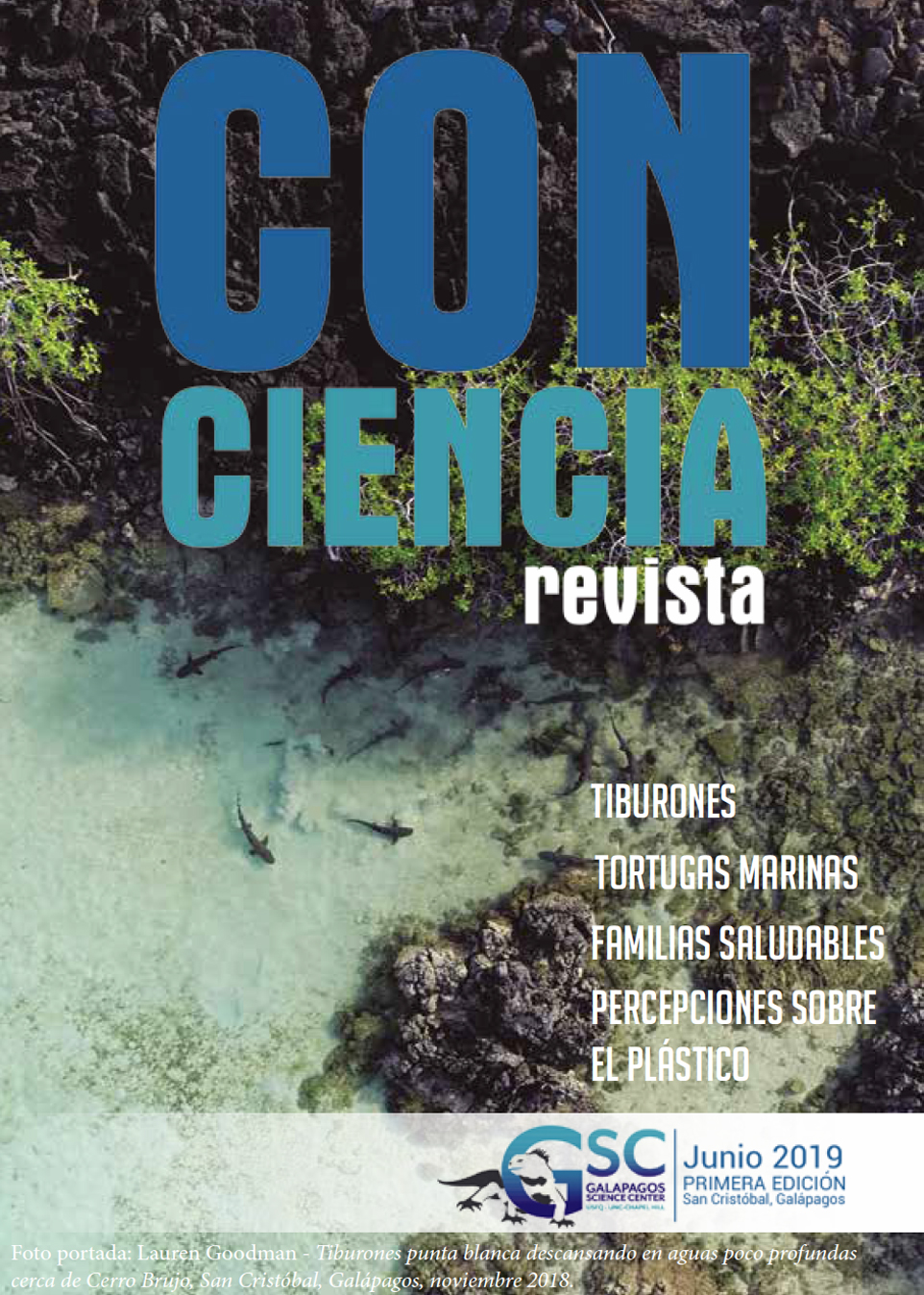NEWS & EVENTS
LATEST NEWS
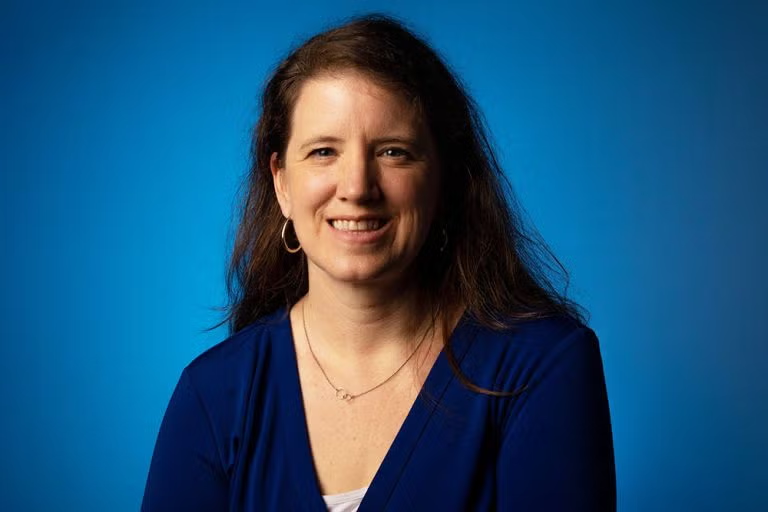
Amanda Thompson named permanent director of the Center for Galapagos Studies
The human biologist has been interim director of the center since 2023 and is also co-director of the Galapagos Science Center.
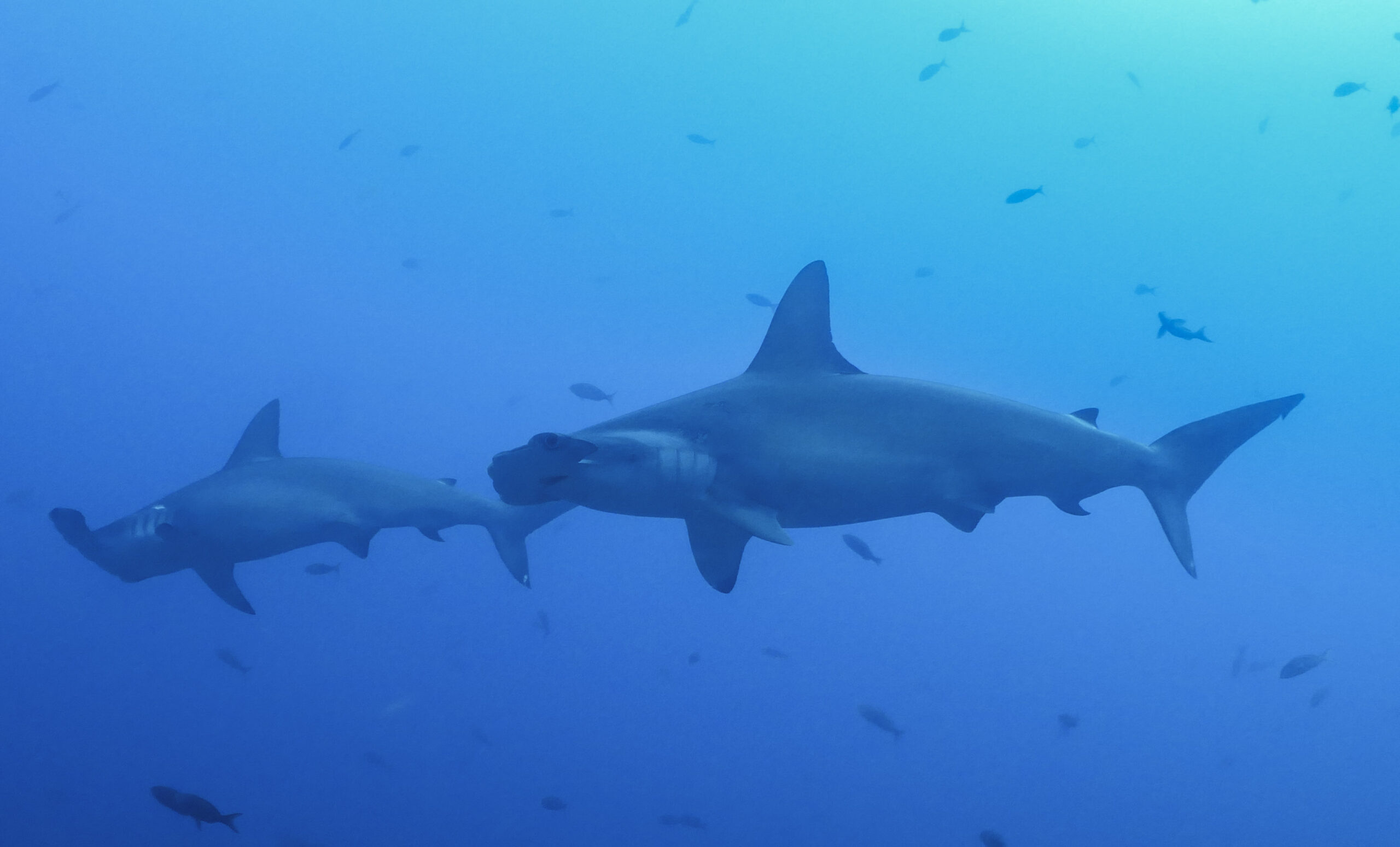
Research Expedition to Paramount: the forgotten seamount
In January 2025, a team of scientists from Universidad San Francisco de Quito (USFQ), the Galápagos Science Center (GSC) and the Galápagos National Park Directorate (GNPD) carried out a two-week expedition to Paramount: a shallow-water seamount rising from a depth of over 1500 m to only 180 m below the surface, located 100 nautical miles northeast of the Galápagos Marine Reserve. The objective of the expedition was to characterize the fish community around the seamount and explore its connections with Galápagos. The work was supported by the organizations Mission Blue, Galápagos Conservation Trust, MigraMar and Bezos Earth Fund.
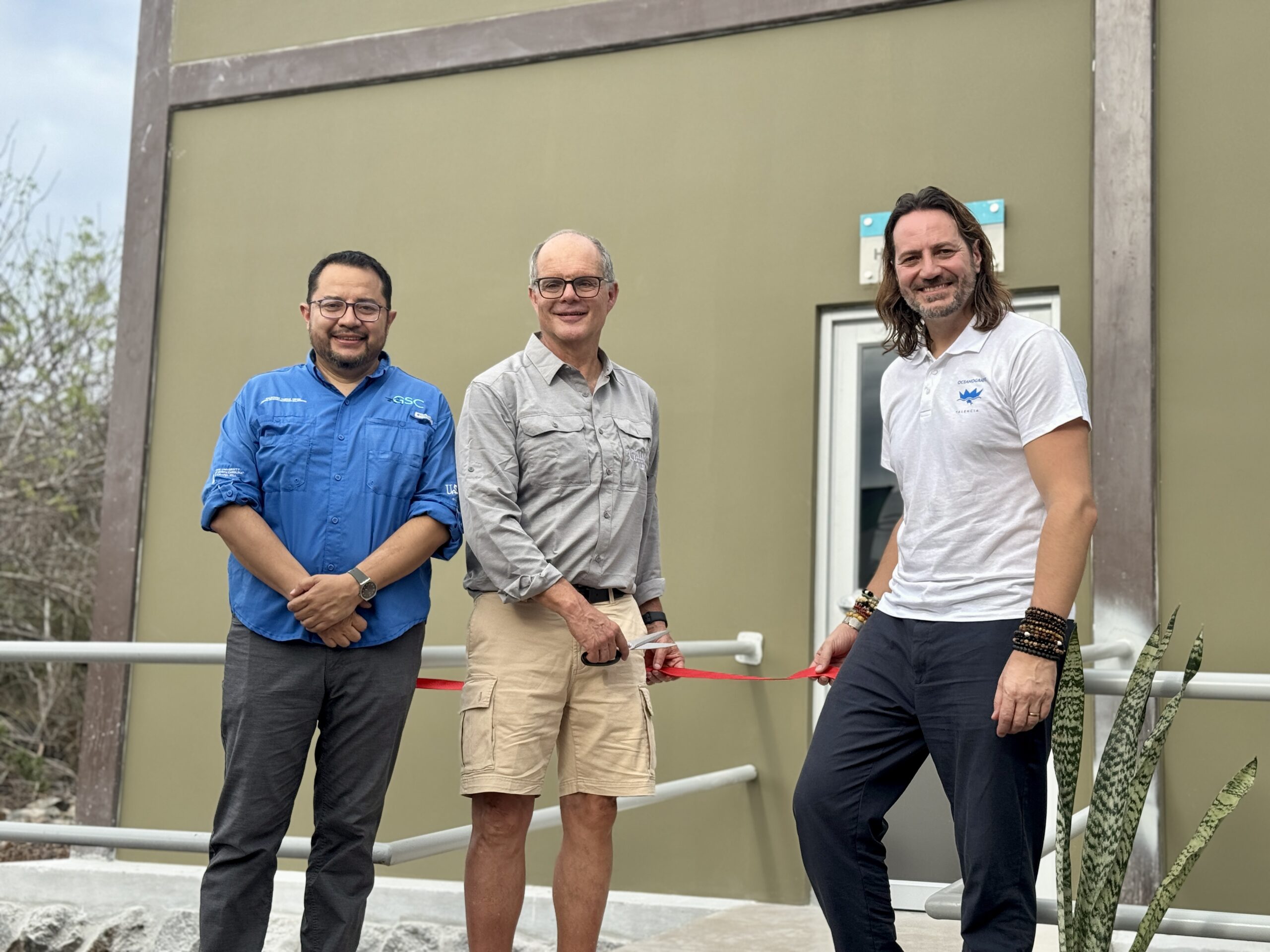
USFQ, through the Galapagos Science Center, promotes a comprehensive wildlife health model in the archipelago
At Universidad San Francisco de Quito (USFQ), through the Galapagos Science Center (GSC), we are committed to biodiversity conservation and the well-being of island ecosystems. As part of this effort, we are leading the strategic planning for the implementation of a Comprehensive Wildlife Health System in the Galapagos Islands, an innovative model based on the One Health approach, which recognizes the connection between animal, environmental, and human health.
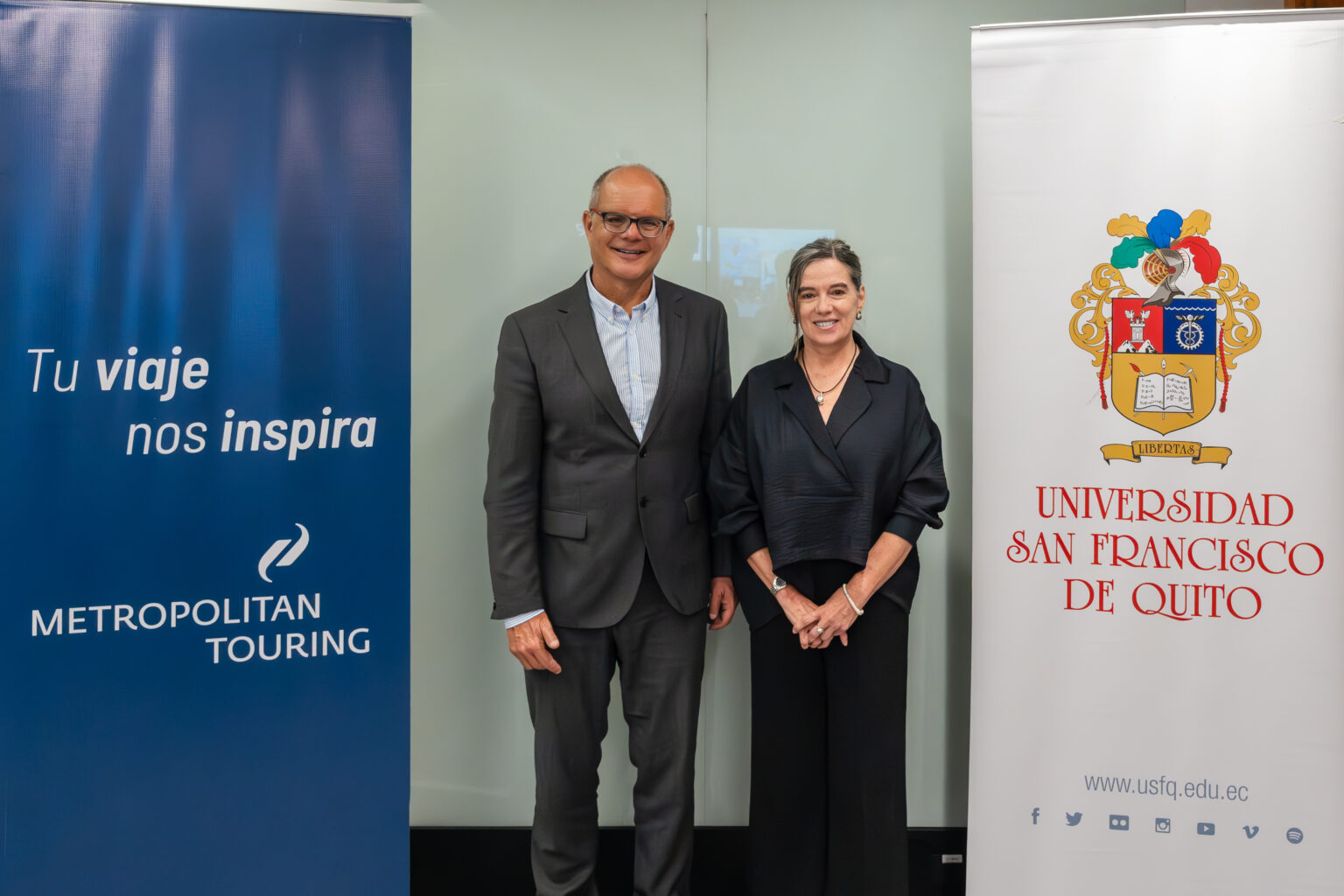
USFQ, Metropolitan Touring, and Finch Bay Hotel sign an agreement to protect whale sharks in the Galápagos
Universidad San Francisco de Quito (USFQ) and Metropolitan Touring have signed a collaboration agreement for the conservation of the whale shark, the world’s largest fish. This partnership reaffirms the commitment of both institutions to sustainability and the protection of the biodiversity of the Galápagos Islands. The initiative is being carried out in coordination with the Galápagos National Park Directorate (GNPD), the authority responsible for protecting the archipelago’s unique ecosystems.
SCIENTIFIC ARTICLES
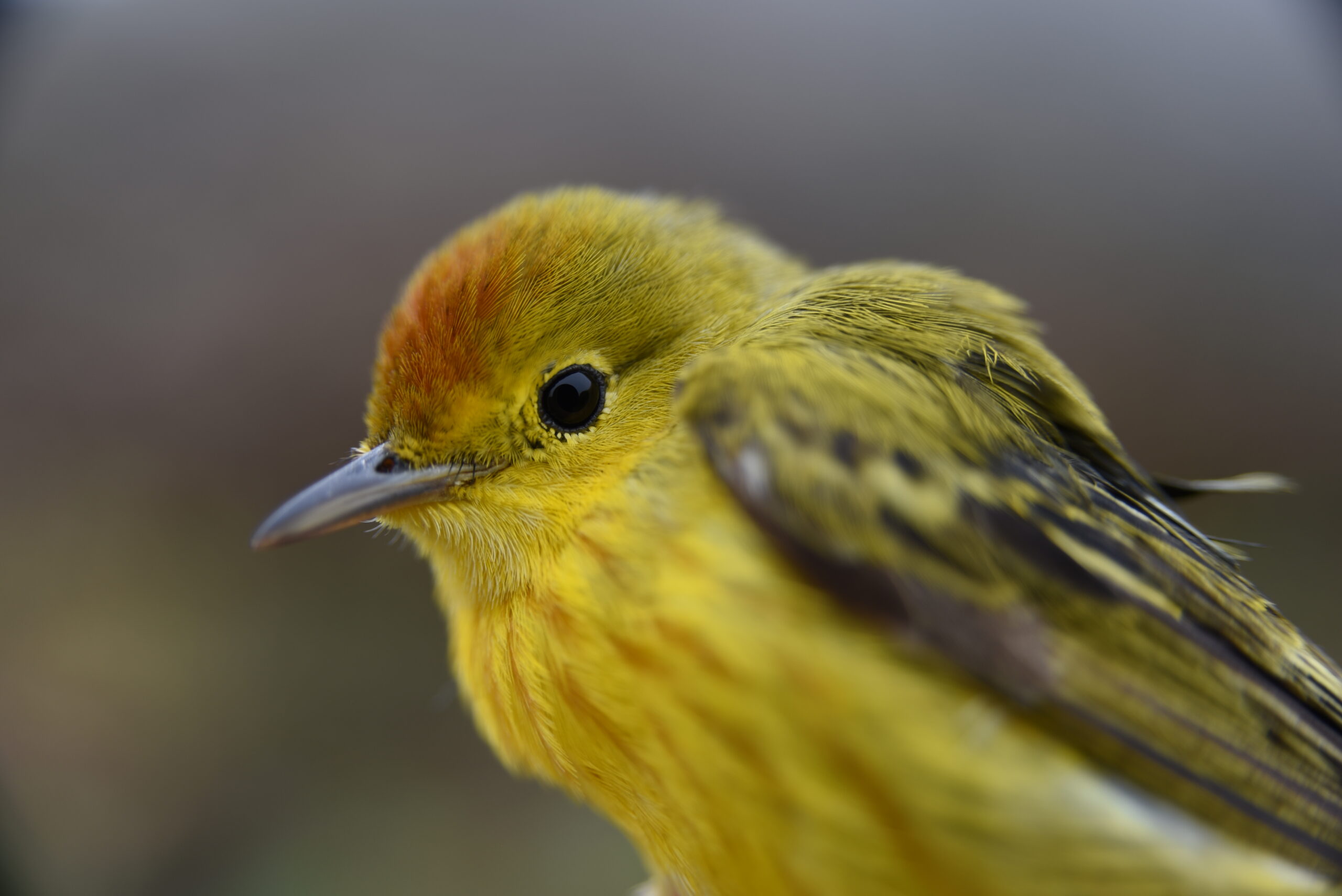
Exploring stress and morphology in two songbird species across urban, agricultural, and natural habitats on San Cristóbal Island, Galápagos
This study analyzed how land use changes affect two bird species in the Galápagos: the small ground finch (Geospiza fuliginosa) and the yellow warbler (Setophaga petechia aureola). The goal was to understand whether habitat alterations, caused by urbanization and agriculture on human-populated islands, affect their size, weight, and levels of the hormone corticosterone, which is linked to stress.
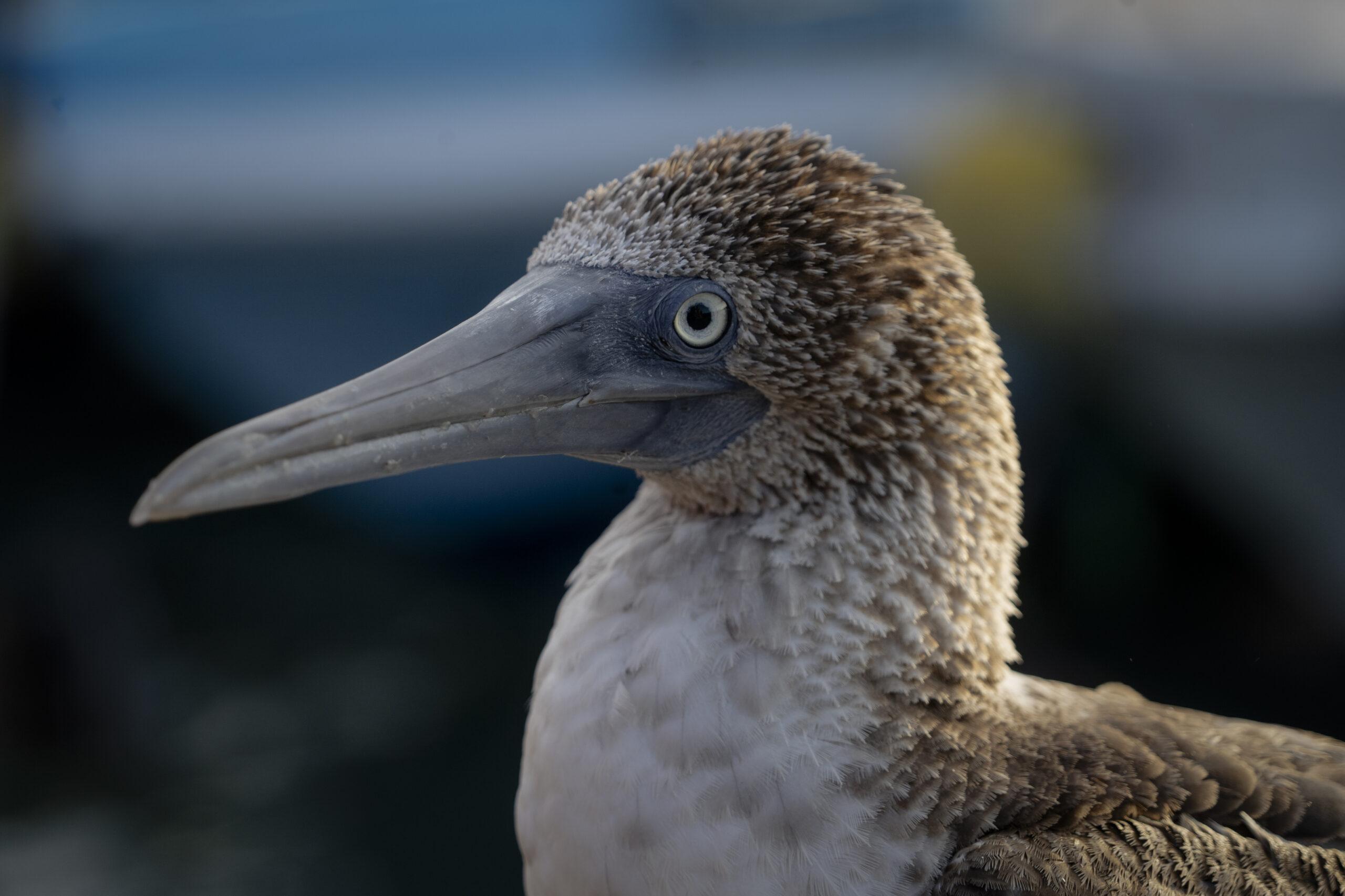
Health assessment of blue-footed boobies (Sula nebouxii excisa) determined by hematology, biochemistry, blood gases, and physical examination in the galápagos islands
The blue-footed booby (Sula nebouxii excisa) is an iconic and endemic species of the Galápagos Islands. While its behavior and reproductive biology have been widely studied, little is known about its health in the wild. This type of information is essential to understand how environmental factors may impact its well-being, especially in the context of climate change and declining prey availability. The recent study aims to provide baseline health data that can support conservation strategies.
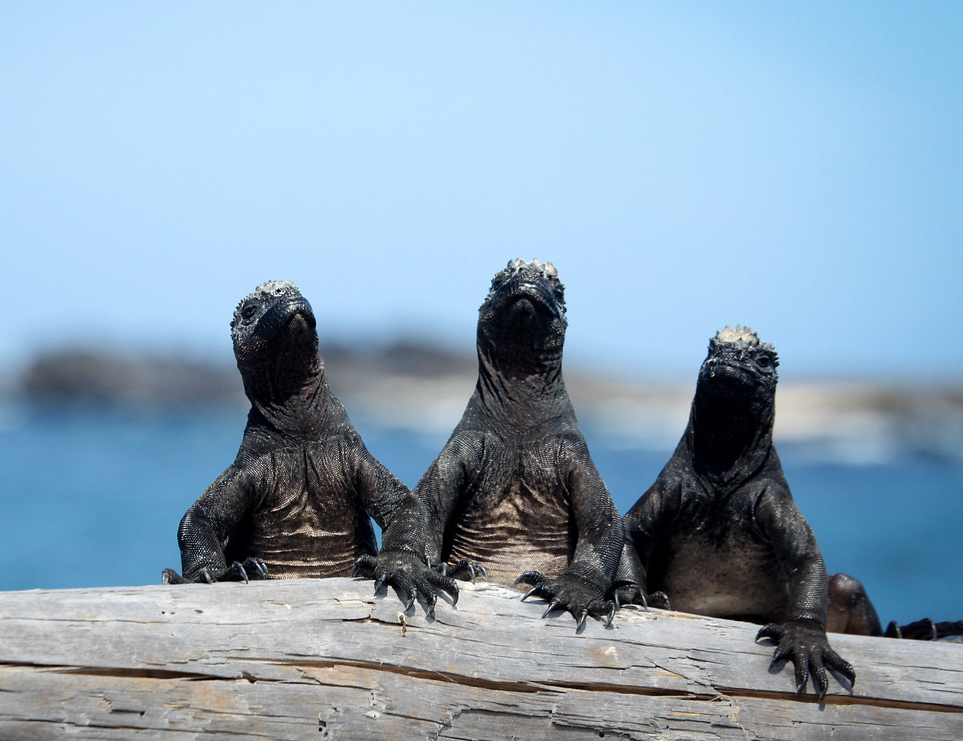
Changes in marine iguana (Amblyrhynchus cristatus) heart rates suggest reduced metabolism during El Niño events
The marine iguanas of Galápagos (Amblyrhynchus cristatus) have the ability to lower their heart rate to conserve energy—an adaptation developed to cope with El Niño events. During these periods, warmer ocean temperatures reduce algae, their main food source, threatening the survival of the world’s only marine lizard.
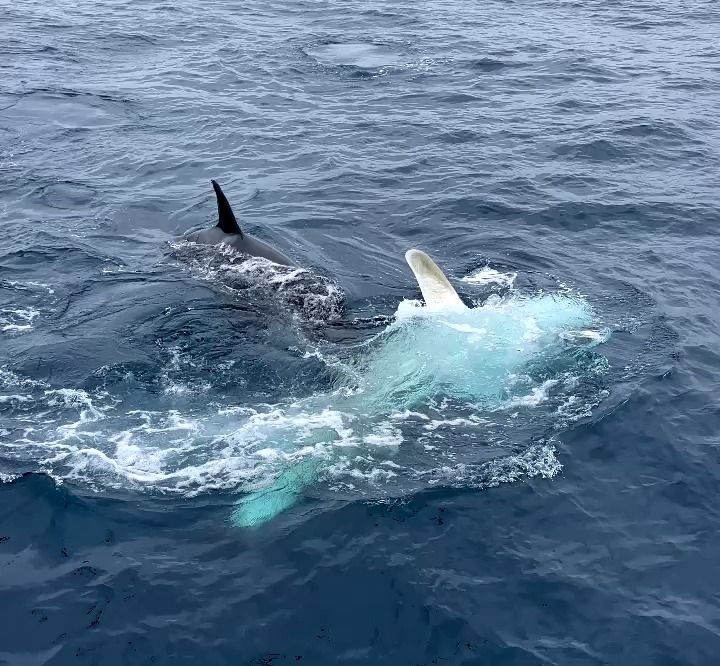
Killer Whale (Orcinus orca) Opportunistic Predation Events on Whale Sharks (Rhincodon typus) in the Eastern Tropical Pacific
Killer whales (Orcinus orca) are known as one of the ocean’s most versatile predators, yet their behavior in tropical waters remains a mystery. This study documents, for the first time, orca attacks on whale sharks (Rhincodon typus) in Ecuador and Panama, providing valuable insights into their hunting strategies in the Eastern Tropical Pacific (ETP). Understanding these events is key to expanding knowledge about this predator’s dynamics in the region.
EVENTS
7TH GALAPAGOS RESEARCH AND CONSERVATION SYMPOSIUM
Puerto Baquerizo Moreno, on San Cristóbal Island, will host the 7th Symposium on Research and Conservation in Galápagos. This important multidisciplinary event, which will take place on Monday, July 14 and Tuesday, July 15, 2025, at the Charles Darwin Convention Center, will be organized by the Galapagos Science Center, thanks to the sponsorship of the University of North Carolina at Chapel Hill and the Universidad San Francisco de Quito, and with the support of the Galápagos National Park.
6TH GALAPAGOS RESEARCH AND CONSERVATION SYMPOSIUM
The 6th Galápagos Research and Conservation Symposium took place on Monday, July 15 and Tuesday, July 16, 2024 at the Charles Darwin Convention Center on San Cristóbal, Galápagos. This important multidisciplinary event was organized by the Galapagos Science Center, with the sponsorship of the University of North Carolina at Chapel Hill and the Universidad San Francisco de Quito with the endorsement of the Galapagos National Park.
5TH GALAPAGOS RESEARCH AND CONSERVATION SYMPOSIUM
Puerto Baquerizo Moreno, on San Cristóbal Island, will host the 5th Galapagos Research and Conservation Symposium. This significant multidisciplinary event will feature scientific presentations and community-focused talks, showcasing research and initiatives related to conservation, environmental change, biodiversity and oceans, health, and community initiatives.
World Summit on Island Sustainability
In 2022, the Galapagos Science Center (GSC) and the broader UNC & USFQ Galapagos Initiative celebrated its 10th Anniversary. The GSC hosted the World Summit on Island Sustainability on June 26–30, 2022 at the Galapagos Science Center and the Community Convention Center on San Cristobal Island.
Read our Epub Magazine 2024 Edition
Read our Epub Magazine 2023 Edition
Read our Epub Magazine 2022 Edition

